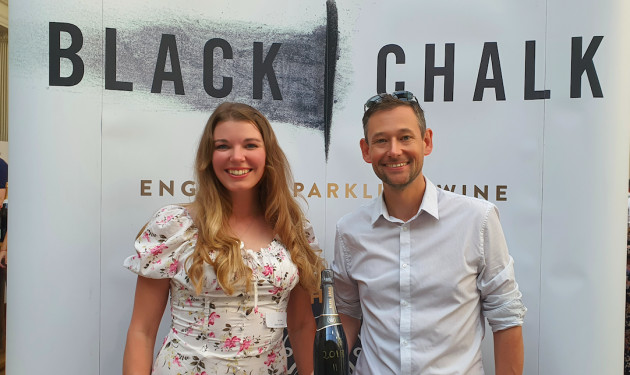
Black Chalk to market two versions of its signature vintage cuvées
Hampshire-based Black Chalk has unveiled plans to release two distinct interpretations of its Classic and Wild Rosé wines, based on the same vintage.
During the Wine GB Annual Tasting today (7 September), Black Chalk will launch the first of two expressions of its 2018 Classic Brut, referred to as 'Classic II'. The other interpretation, known simply as 'Black Chalk Classic', will be unveiled in summer 2022.
The first of the Wild Rosé 2018 'twins' launched earlier this year. Its counterpart will be available in February 2022.
The 2018 Classic II, as well as the 2018 Wild Rosé II, are sourced from completely different Hampshire vineyards to their 2018 counterparts.
According to Black Chalk's winemaker and CEO, Jacob Leadley, this pioneering venture is designed to highlight the importance of terroir – and winemaking – in shaping wine style.
“The 'II' versions have been created in a softer more generous style than the main labels. In part, this is thanks to 80-90% malolactic fermentation conducted on the base wines, bringing already low acids to a soft and gentle level in the final wines,” he said.
He added that the Black Chalk Classic is a blend of Chardonnay (58%); Pinot Meunier (32%) and Pinot Noir (10%). The wine typically spends 24 months on its lees before disgorgement.
Meanwhile, Leadley told Harpers that Black Chalk was expecting “below average yields in 2021.” Many vineyards in Europe were of course totally wiped out by the frost attacks of late spring.
“Yields are expected to be below average but not as low as other big frost event seasons such as 2016 and 2017. However, the late start is causing us concern as we head into September and still being a number of weeks behind an average year,” Leadley said.
He added: “Even this late warmth (as welcome as it is) is forecast to be short. The growing season has been condensed and it has been extremely challenging to keep on top of the various tasks as the wet and sometimes warm weather led to fast growing conditions in June/July for the vines, as well as the grass and weeds.
“The wet weather in August created high levels of disease pressure and I am sure many others have struggled to suppress these too.”
Fred Langdale, vineyard director at Exton Park, agreed that the 2021 vintage had really tested British winegrowers.
“This year has brought a number of challenges on the vineyard. We managed to protect our most vulnerable plot before the frost came so we were lucky to avoid damage. However, with very unsettled weather this summer, the biggest threat for us has been fungal damage,” he said.
“The good news is that our efforts have been rewarded and our grape quality is very good – the fruit is looking clean and healthy and ripening times have been spot on. We are predicting harvest to start mid-October, the sooner it comes the better.”
Keywords:
- wine
- Vintage
- CEO
- Rosé
- first
- GB
- black
- classic
- Black Chalk
- II
- chalk
- wild
- unveiled
- wild rosé
- classic ii
- 2018 classic
- 2018 wild
- 2018 wild rosé
- wild rosé 2018
- rosé 2018 twins
- 2018 twins launched
- twins launched earlier






